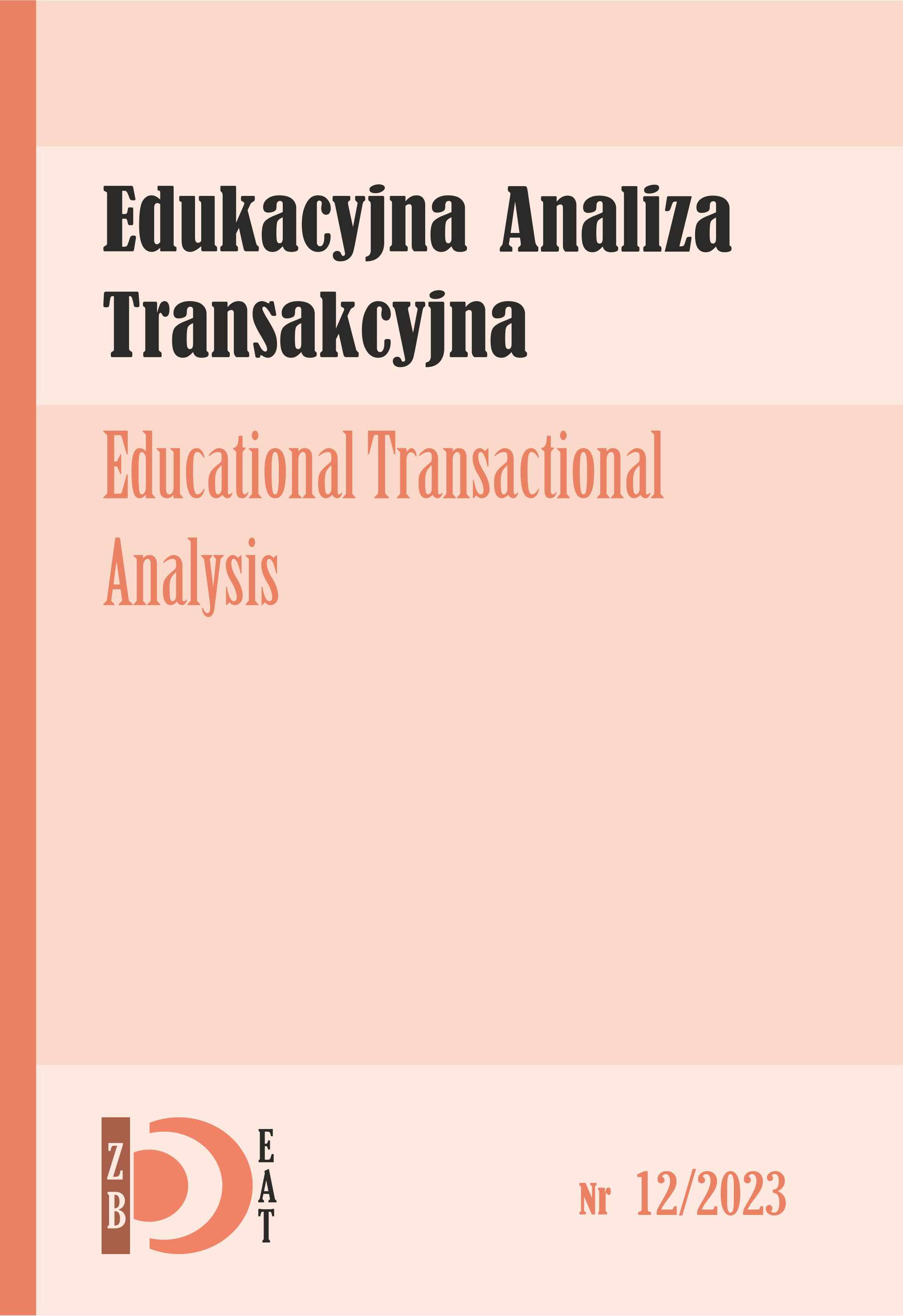Idea projektowania uniwersalnego w procesie edukacyjnym na Uniwersytecie. „Projektowanie uniwersalne przestrzenią równych szans i dostępności dla osób z niepełnosprawnościami”
- Autor
-
-
Wioletta Sołtysiak
Uniwersytet Jana Długosza w Częstochowie
-
- Słowa kluczowe:
- projektowanie uniwersalne, dostępność
- Abstrakt
-
Artykuł traktuje o koncepcji projektowania uniwersalnego, w procesie edukacyjnym na Uniwersytecie, w kontekście udziału autorki w projekcie pt. „Projektowanie uniwersalne przestrzenią równych szans i dostępności dla osób z niepełnosprawnościami”.
W tym celu dokonano przeglądu literatury, omówiono zadania projektowe i odniesiono się do roli idei Projektowania uniwersalnego we współczesnej przestrzeni edukacyjnej.
Napisano o włączeniu projektowania uniwersalnego do procesu nauczania-uczenia się na Uniwersytecie, o inkluzji nauczania oraz dostępności, które jest słowem - kluczem dla idei projektowania uniwersalnego. Zakładany cel projektu został osiągnięty. Wykładowcy i studenci nabyli większą świadomość w zakresie dostępności. W ramach realizacji zadań projektowych, zapoznano się m.in. z zasadami projektowania uniwersalnego i ich praktycznym wykorzystaniem. Uczestnicy nabyli wiedzę, kompetencje i umiejętności, które pozwolą im na wykorzystanie ich w sferze społecznej, w praktyce zawodowej.
- Pobrania
-
Statystyki pobrań niedostępne.
- Bibliografia
-
Brown, S. (1999). The curb ramps of Kalamazoo: discovering our unrecord-ed history. Disability Studies Quarterly, 9(3), 203–205.
Bajkowska, M.M., Perkowski T. (2022). Projektowanie uniwersalne w prze-strzeni uniwersyteckiej – idee, możliwości, dobre praktyki. Białystok: Wydawnictwo Uniwersytetu w Białymstoku.
Chudy, W. (2001). Człowiek niepełnosprawny w świetle filozofii. In: P. Ma-zanek (ed.), Filozofia i teologia w życiu człowieka (pp. 113–126). War-szawa: Uniwersytet Kardynała Stefana Wyszyńskiego.
Gawron, G. (2015). Universal design – projektowanie uniwersalne jako idea w dążeniu do osiągania partycypacji społecznej osób niepełnospraw-nych. Roczniki Nauk Społecznych, 7(43), 1, 1–9; http://dx.doi.org/10.18290/rns.2015.7(43).
Gawron, G., Rojek-Adamek, P. (2017). Again in place. Design w obronie wieku. Kultura Popularna, 2(52), 4–19; http://dx.doi.org/10.5604/01.3001.0010.7046.
Hansen, A. (2005). Education in Norway – equality, nature and knowledge. In: E. Maagerø, B. Simonsen (eds.), Norway: society and culture. Kri-stiansand: Portal.
Jagiełło-Kowalczyk, M., Tokarski, Ł. (2022), Inspiracje dziedzictwem przy-rodniczym i kulturowym w projektowaniu wnętrz. Housing Environ-ment. Współczesna architektura mieszkaniowa w przestrzeni miasta, 41, 93–102; http://dx.doi.org/10.4467/25438700SM.22.033.17156.
Jówko, E. (2022). Projektowanie uniwersalne. Innowacja w kształceniu stu-dentów Uniwersytetu Przyrodniczo-Humanistycznego w Siedlcach. Stu-dent Niepełnosprawny. Szkice i Rozprawy, 22(15), 65–72; http://dx.doi.org/10.34739/sn.2022.22.06.
Jurkowska, A. (2002). Idea projektowania uniwersalnego w planowaniu przestrzennym. Architectus, 1(11), 155–158.
Mace, R.L. (1985). Universal Design. Barrier-Free Environments for Every-one. Designers West, 33, 1.
Nilsen, S. (2010). Moving towards an educational policy for inclusion? Main reform stages in the development of Norwegian unitary school system. International Journal of Inclusive Education, 5.
Stankiewicz, T. (2023). Epistemologiczne i antropologiczne aspekty projek-towania uniwersalnego. Paideia, 5, 89–112.
Wróblewska, U. (2022). Projektowanie uniwersalne w przestrzeni uniwersy-teckiej – idee, możliwości, dobre praktyki. In: M.M. Perkowska, T. Baj-kowski (eds.), Historia amerykańskiego uniwersalnego projektowania w kontekście ludzkich doświadczeń – twórcy, luminarze i propagatorzy idei (pp. 57–77). Białystok: Wydawnictwo Uniwersytetu w Białymstoku.
Uchwała w sprawie ustanowienia rządowego programu “Dostępność plus” (2018). Online: https://www.gov.pl/web/premier/uchwala-w-sprawie-ustanowienia-rzadowego-programu-dostepnosc-plus [Accessed: 20.10.2023].
- Pobrania
- Opublikowane
- 28.12.2023
- Numer
- Nr 12 (2023)
- Dział
- Na pograniczu dziedzin
- Licencja
-
Prawa autorskie (c) 2023 Wioletta Sołtysiak

Utwór dostępny jest na licencji Creative Commons Uznanie autorstwa 4.0 Międzynarodowe.
OŚWIADCZENIE AUTORA:
Mam świadomość, że czasopismo jest wydawane na licencji Creative Commons - Uznanie autorstwa (https://creativecommons.org/licenses/by/4.0/legalcode).
Przesyłając artykuł wyrażam zgodę na jego udostępnienie na tej licencji
Jak cytować
Podobne artykuły
- Karol Motyl, Pracuj albo graj! Pokój nauczycielski w świetle teorii analizy transakcyjnej , Edukacyjna Analiza Transakcyjna: Nr 14 (2025)
- Paweł Plaskura, Edukacja w dobie generatywnej sztucznej inteligencji: perspektywa analizy transakcyjnej , Edukacyjna Analiza Transakcyjna: Nr 14 (2025)
Możesz również Rozpocznij zaawansowane wyszukiwanie podobieństw dla tego artykułu.


